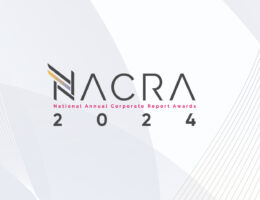By MIA Sustainability, Digital Economy and Reporting Team
This article assesses the current state of play in the sustainability reporting space worldwide and in Malaysia, and identifies the roles that accountants can play in expediting adoption.
Global developments in sustainability reporting
In June 2023, the International Sustainability Standards Board (ISSB) issued its first two IFRS Sustainability Disclosure Standards (ISSB Standards) which are designed to provide a global baseline of sustainability-related disclosures for the capital markets, creating a common language for disclosing the effect of climate-related risks and opportunities on a company’s prospects.
IFRS S1 requires companies to communicate the sustainability-risks and opportunities they face over the short, medium, and long term, while IFRS S2 sets out specific climate-related disclosures and is designed to be used with IFRS S1. Both Standards are based on recommendations of the Task Force on Climate-related Financial Disclosures (TCFD). To find out more about the two Standards, please visit Supporting materials for IFRS Sustainability Disclosure Standards.
The two Standards were finalised after receiving more than 1,000 comments from various organisations globally following its public exposure in March 2022. The development of the two Standards is in response to requests from G20 leaders, the International Organization of Securities Commissions (IOSCO) and others for enhanced information from companies on sustainability-related risks and opportunities.
The European Commission (the Commission) adopted the European Sustainability Reporting Standard for use by companies in Europe to report certain sustainability information in July 2023. By requiring the use of common standards, the Commission aims to ensure that companies across the European Union (EU) report comparable and reliable sustainability information.
There are 12 standards in total, covering a range of issues on environment, social and governance. The standards provide information on the sustainability impact of companies. The ISSB Standards and the Global Reporting Initiative (GRI) were considered in developing the standards to ensure a very high degree of alignment between ESRS and the global standards as well as to prevent unnecessary double reporting by companies. The reporting requirements will be phased in over time for different companies.
Local sustainability reporting landscape
Since 2015, listed issuers on Bursa Malaysia (Bursa) have been required to provide sustainability disclosures through the inclusion of a Sustainability Statement in their annual report. Bursa enhanced its sustainability reporting requirements in September 2022 to better align with global reporting expectations, including recommendations of the TCFD.
The enhanced requirements are built on the TCFD core pillars adopted by the ISSB in developing the ISSB Standards. These are governance, strategy, risk management, as well as key metrics and targets. This similarity between Bursa’s sustainability reporting requirements and the ISSB Standards provides good grounds for listed issuers on Bursa to move towards more advanced reporting requirements¹.
The enhanced sustainability reporting requirements are being implemented in a phased manner for both the Main and ACE Market listed corporations. These include disclosures of common sustainability matters and indicators, at least three financial year’s data for each reported indicator and corresponding performance targets and statement of assurance on the Sustainability Statement. For more information on the enhanced requirements, kindly refer to Circular 50/2022 which can be accessed from the MIA e-library.
In May 2023, the Securities Commission Malaysia (SC) set up a national level Advisory Committee on Sustainability Reporting (ACSR) to support the implementation of the ISSB Standards in Malaysia. The ACSR comprises representatives from SC (as Chair), Bank Negara Malaysia, Bursa Malaysia, the Companies Commission of Malaysia, the Audit Oversight Board and the Financial Reporting Foundation².
Accountants and sustainability reporting
The knowledge and skills that accountants possess make them indispensable in playing a significant role in sustainability reporting, which are as follows:
Preparation and provision of information

Accountants are in the best position to prepare and/or provide information for sustainability reporting. For example, IFRS S1 requires that an entity disclose material information about the sustainability-related risks and opportunities that could reasonably be expected to affect the entity’s prospects. Accountants are very familiar with the materiality concept which they have used in financial reporting, integrated reporting (IR) and assurance engagement.
Connectivity of information

The involvement of accountants in IR and their application of integrated thinking during such involvement enables them to understand and incorporate the connectivity of information. Accountants will be able to continue using such skills in sustainability reporting as IFRS S1 requires an entity to provide information that enables users of general-purpose financial reports to understand the connections between the items to which the information relates and the connections between disclosures provided by the entity.
Risk management

Two of the core contents of IFRS S1 centre around governance and risk management. Accountants play a crucial role in risk management as they carry out, among others, risk identification, risk assessment, risk mitigation, internal controls design and implementation as well as ensure compliance with rules and regulations. This leads to accountants being able to provide advice on risk management (and to a certain extent, also on governance) on the disclosures required by IFRS S1.
Linkage between financial and non-financial information

Accountants have played a significant role in IR where chief financial officers (CFOs) and finance functions in organisations are often involved actively in the task force or working group in preparing IR. Accordingly, they have developed knowledge and skills in linking financial and non-financial information including drawing insights from such information.
Assurance on sustainability information

Accountants who are auditors have been providing various types of assurance on the audit of financial statements, review of interim financial report as well as review of statement of risk management and internal control, among others. With such knowledge and skills, auditors are in the best position to provide assurance on sustainability information. In August 2023, the International Auditing and Assurance Standards Board (IAASB) issued an exposure draft (ED) on the proposed International Standard on Sustainability Assurance (ISSA) 5000 in relation to general requirements for sustainability assurance engagements. The ED can be accessed here.
¹ https://www.sc.com.my/resources/media/media-release/sc-sets-up-inter-agency-committee-to-support-implementation-of-the-issb-standards
² ibid






